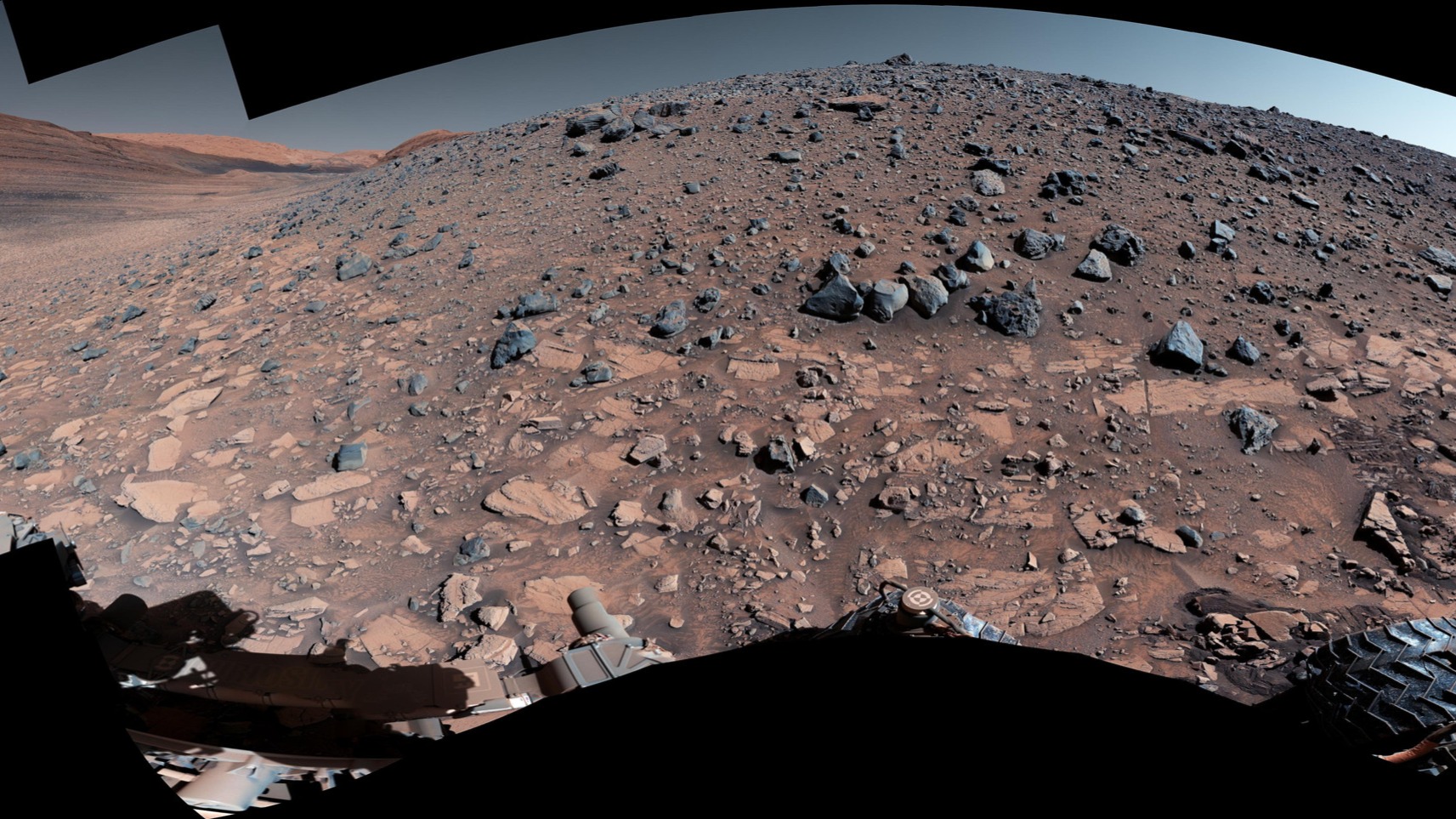By merging the capabilities of artificial intelligence in chemical discovery with endeavors to explore and potentially inhabit the enigmatic realm of outer space, a robot has successfully utilized crater samples from Mars to facilitate the production of oxygen from water.
As detailed in the articles published in Nature Synthesis on Monday, this automated experiment significantly enhances the feasibility of sustaining future space missions in inhospitable environments. The researchers estimate that achieving the same results through manual labor would have entailed a daunting 2,000-year endeavor fraught with challenges and setbacks.
The AI-powered system leveraged the Martian rock specimens to engineer a catalyst, a substance that expedites chemical reactions, enabling the extraction of oxygen from water sources. Conducted by a multidisciplinary team based in Hefei, China, at the University of Science and Technology, this study capitalizes on the burgeoning interest in utilizing extraterrestrial resources for cosmic colonization.
Professor Jun Jiang, a co-author of the Nature Synthesis publication, emphasized the groundbreaking nature of this achievement, stating, “The significant implication lies in the ability of an AI-driven robot to synthesize valuable compounds under unfamiliar conditions using alien materials. My vision entails deploying a fleet of robotic systems to the Moon initially, tapping into local resources to manufacture essential compounds and substances required for human survival.”
Charles Cockell, a distinguished science professor at the University of Edinburgh not directly involved in the research, underscored the critical importance of oxygen as a life-sustaining resource, hailing this advancement as a pivotal step towards establishing enduring, self-sustaining settlements on Mars.
NASA/Cover Images/Reuters: The AI system devised a catalyst from rock samples to facilitate the generation of oxygen from water, thereby expediting chemical reactions.
The researchers tasked the AI model with developing materials capable of extracting oxygen from the water reservoirs previously identified on Mars. To create an effective catalyst, the team provided the automated scientist with five distinct rock samples for analysis.
Within a mere six weeks, the robot meticulously sifted through 3,764,376 potential formulas, ultimately synthesizing a practical six-metal catalyst after scrutinizing 243 empirical datasets and conducting nearly 30,000 virtual simulations. The experiment was conducted successfully under Martian temperature conditions of minus 37 degrees Celsius. By establishing and coordinating operations across multiple electronic laboratories in three separate Chinese cities hundreds of kilometers apart, the researchers demonstrated the feasibility of remote management.
A video accompanying the research paper showcases the AI scientist autonomously navigating between workstations, diligently crafting the requisite materials for oxygen production. This scene evokes parallels to the cinematic portrayal in Silent Running (1972), where the robot Edwards tends to Earth’s last remaining forests aboard a spacecraft voyaging through deep space.
The convergence of AI technology and space exploration continues to captivate nations such as China and the United States, with visionaries like Elon Musk of SpaceX harboring ambitious plans for Mars missions.
Nonetheless, formidable challenges persist in the quest to establish colonies in extraterrestrial systems. The endeavor demands exceptional operational efficiency and robust computational capabilities, whether deployed on-planet or off-planet, to support remote AI manufacturing and laboratory functions. Structures on Mars must withstand significantly higher energy levels than those encountered in Earth’s environment.
Dr. Stephen Thompson, an astrophysics expert at Diamond Light Source in the UK, highlighted the intriguing prospects unveiled by the Martian rock study. Notably, an AI facility could potentially serve as an interstellar “refueling station” for spacecraft by capturing residual gases post-oxygen extraction from water sources.
Thompson further underscored the groundbreaking nature of leveraging AI for material discovery, emphasizing the unparalleled efficiency and efficacy of AI in identifying novel resources compared to traditional human-centered approaches.
Professor Mark Symes, specializing in photocatalysis and electrochemical technology at the University of Glasgow, lauded the interdisciplinary synergy of science, robotics, and software engineering evident in this study as “truly remarkable.”
Symes emphasized the indispensable role of these interdisciplinary fields in the envisioned colonization of Mars, asserting that scientific advancements are pivotal in securing essential resources for sustaining life, regardless of the planetary habitat.






